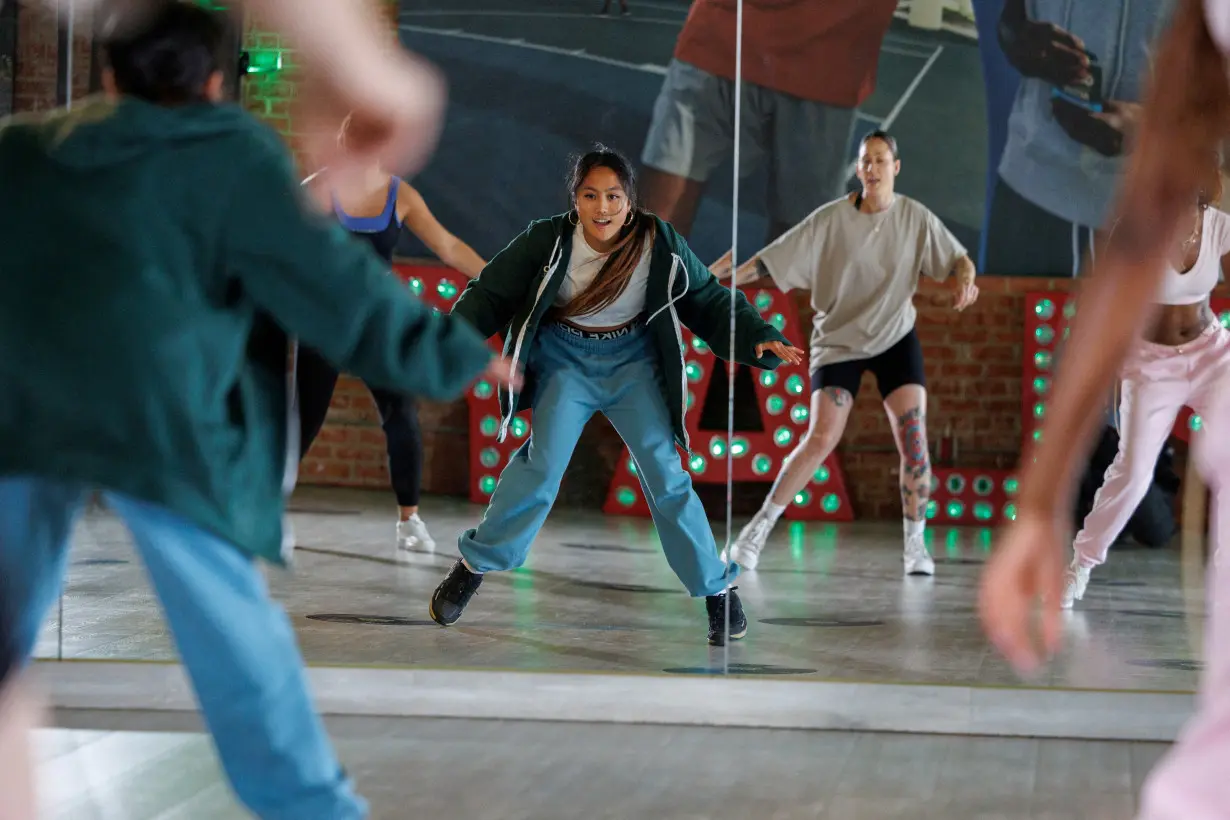By Rory Carroll
LOS ANGELES (Reuters) - The already high stakes of Olympic competition will be further elevated for breakers at the Paris Games where the champions could be the only ones to ever win gold medals in the sport.
Breaking will make its Olympic debut in Paris but Los Angeles has already said it will not be part of its programme in 2028 and odds are it will not return when Brisbane hosts in 2032.
"It's a bummer that we're not approved for the next Olympics but I still believe in us," U.S. breaker Logan "Logistx" Edra told Reuters.
"I know that in Paris we are going to bring so much light and good energy with our dance."
Born at block parties in the Bronx borough of New York in the 1970s, breaking, known commonly to the uninitiated as breakdancing, blends urban dance with acrobatic moves set to the grooves of hip-hop music.
In Paris, 16 B-Girls and 16 B-Boys will engage in one-on-one battles beginning with a round-robin competition, quarter-finals, semi-finals and finally medal events under the watchful eye of the judges.
The women's competition will be held on Aug. 9 and the men's on Aug. 10 in the heart of the city at the Place de la Concorde.
After the combatants are introduced to the crowd by the MC, the first dancer starts their "throw down" in the top rock position, dancing upright to the beat before transitioning to a go down, where the breaker moves to the floor.
From there they use their hands for support as they move their legs through intricate footwork steps. Power moves, such as when a dancer spins continuously, freezes, and a side variety of other tricks and flips follow.
While the breaker knows the playlist of songs that can be selected by the DJ during the battle, they do not know the exact song they will be dancing to until it comes out of the loudspeakers.
"That's what I love about breaking, you've got to adapt in the moment," said B-Boy Victor Montalvo, who won the 2023 World Breaking Championship to book his spot on the U.S. team for Paris.
Breaking is part sport, part art form, and all self-expression, Montalvo said.
"You've got to be creative, have style, have individuality, have your own fingerprint," he said.
Even if breaking is one-and-done at the Olympics, its athletes see a bright future for the sport while always honouring its roots, Montalvo said.
"I'm so happy to represent my culture and show people the real essence of breaking," he said.
"We're bringing the hip-hop vibe to the Olympics because we have a lot to offer."
(Reporting by Rory Carroll in Los Angeles; Editing by Peter Rutherford)

 Bondi faces a skeptical reception from Democrats at confirmation hearing over her loyalty to Trump
Bondi faces a skeptical reception from Democrats at confirmation hearing over her loyalty to Trump
 In eyeing Greenland, Trump is echoing long-held American designs on the Arctic expanse
In eyeing Greenland, Trump is echoing long-held American designs on the Arctic expanse
 Kamala Harris memes questioning her cultural background highlight Americans’ contradictions with race
Kamala Harris memes questioning her cultural background highlight Americans’ contradictions with race
 78 dead at abandoned South Africa gold mine that was scene of a standoff. Toll is expected to rise
78 dead at abandoned South Africa gold mine that was scene of a standoff. Toll is expected to rise
 Poland's leader accuses Russia of planning acts of terror against 'airlines over the world'
Poland's leader accuses Russia of planning acts of terror against 'airlines over the world'
 Vulnerable Americans live in the shadow of COVID-19 as most move on
Vulnerable Americans live in the shadow of COVID-19 as most move on
 Universities are mapping where local news outlets are still thriving − and where gaps persist
Universities are mapping where local news outlets are still thriving − and where gaps persist
 China blacklists four U.S. companies for involvement in arms sales to Taiwan
China blacklists four U.S. companies for involvement in arms sales to Taiwan
 Wildfires latest: A final round of dangerous fire weather and dry conditions is in the forecast
Wildfires latest: A final round of dangerous fire weather and dry conditions is in the forecast
 Music streams hit nearly 5 trillion in 2024. Women pop performers lead the charge in the US
Music streams hit nearly 5 trillion in 2024. Women pop performers lead the charge in the US








